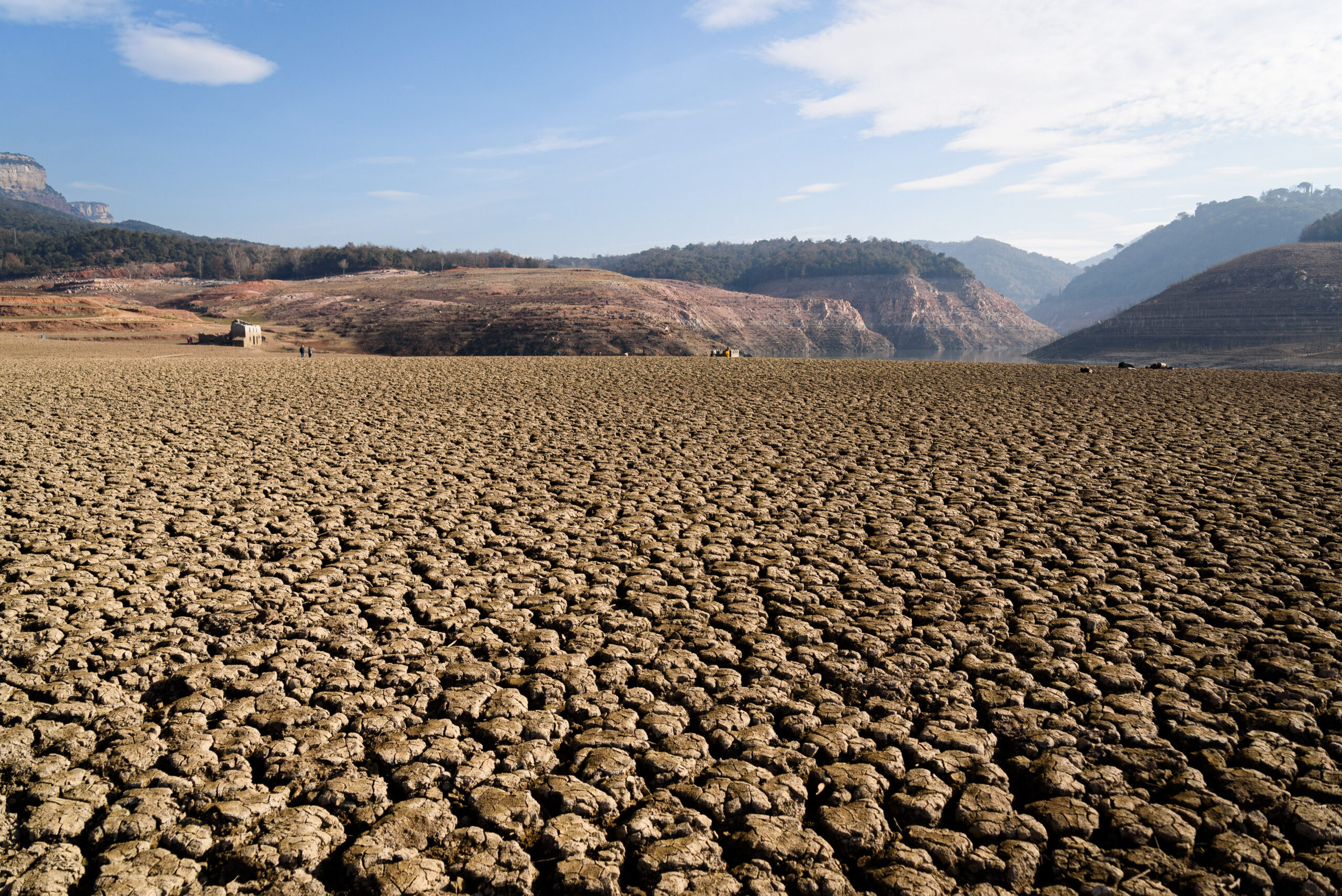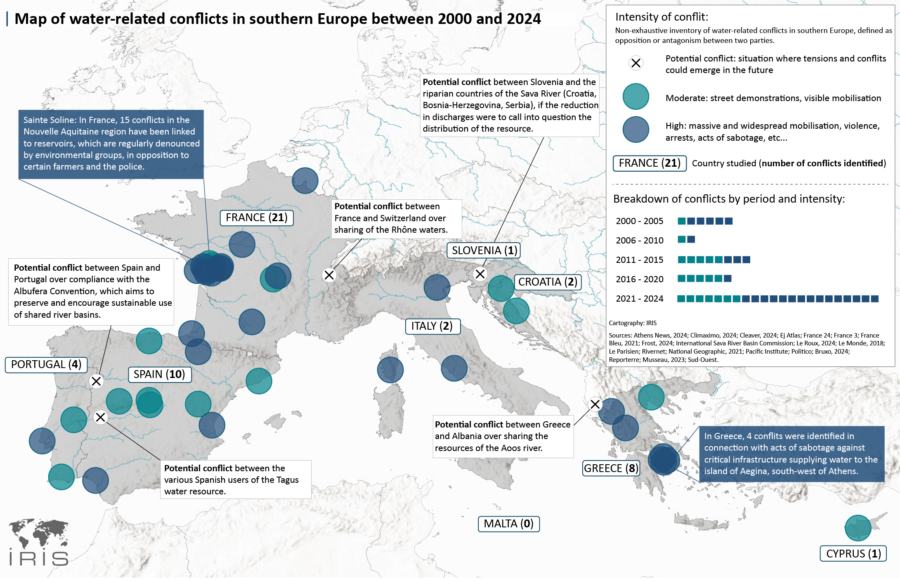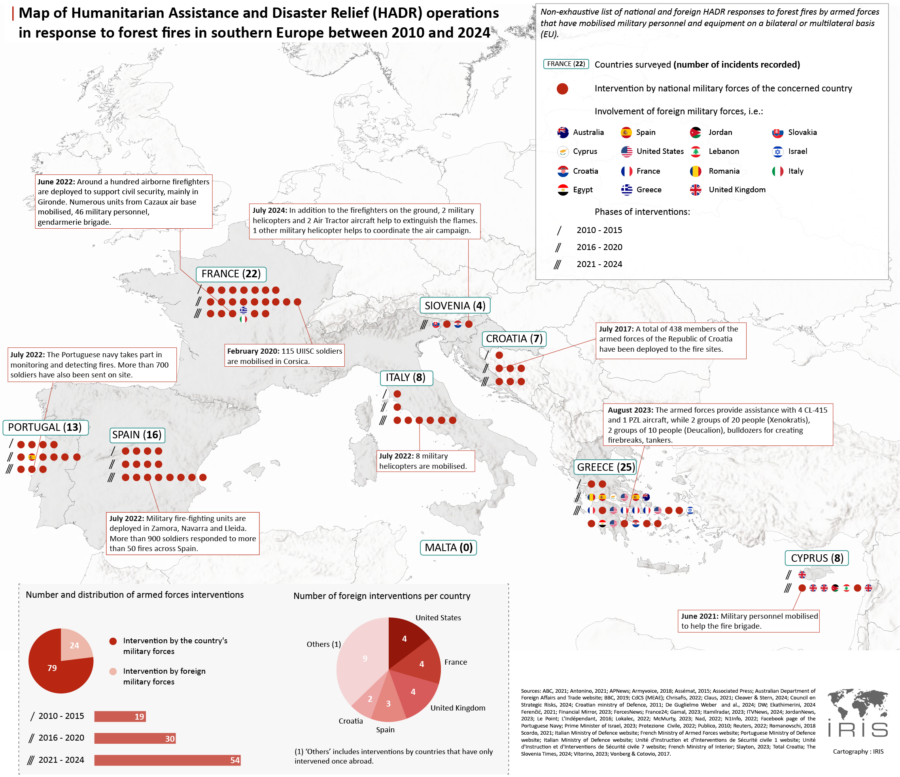Security Challenges of Water Stress in Southern Europe
This note assesses how water stress, a growing phenomenon defined by high tension on water resources caused by an imbalance between water supply and demand, can be exacerbated by climate change and human activities, and affect societies in southern Europe and the French armed forces when conducting their missions.
This note is divided in three sections: an analysis of the societal consequences of water stress in southern Europe and the potential associated conflicts (I), a study of the operational and organizational challenges that water stress generates for the French armed forces and their European partners (II), and finally, three foresight scenarios to 2050, with recommendations for the Ministry of the Armed Forces (III).

The note presents the consequences of climate change on southern Europe’s water cycle, as well as the factors leading to a growing scarcity of available fresh water. The analysis of scarcity factors is set against a backdrop of mismatches between demand and supply. Over the past fifty years, demand for water has been rising steadily in southern Europe, especially due to population growth, urbanization, the development of agriculture and the energy industry. However, European public policies are often ill-adapted to the situation, leading to an intensification of water stress.
Water and water stress hold the potential for conflicts. Although conventional inter-state wars are unlikely to be triggered by water stress in southern Europe, the resource can nevertheless be instrumentalized by states in times of tension. On a local scale, water stress can also lead to disputes over the appropriation, management or use of water. The survey carried out by the Observatory as part of this report shows an increase in the frequency and intensity of this type of conflict in southern Europe between 2000 and 2024.
For the French armed forces, the challenges posed by water stress are threefold: (1) Military bases on French territory will have to cope with increasing variations in water availability. Moreover, the integration of these risks by the armed forces is consubstantial with the water situation in each region. (2) The training and deployment conditions of the armed forces will also be affected by a qualitative and quantitative reduction in water resources, against a backdrop of rising demand for water for human consumption. (3) Lastly, the increasing number of water crises exposes the armed forces to the risk of capacity constraints, particularly for humanitarian assistance and disaster relief operations (HADR).
At the European level, Spain, Portugal, Italy and France have adopted structural and holistic military strategies to reduce water consumption. Other countries, such as Slovenia, have adopted a technocentric, reactive approach to such issues. Although the Greek army was the initiator of the main European military cooperation project on water management in military bases, the Smart Blue Water Camp project, the country’s military seems to be little involved in water management. While cooperation is frequent in water governance, it is rarer in the military field, particularly in the context of overseas operations, where the desire to maintain logistical autonomy prevails.
Refer to the note to discover the recommendations made by the research team of the Defence and Climate Observatory, as well as the infographics and the two maps related to conflicts over water resources and emergency military interventions in response to wildfires in Southern Europe.







